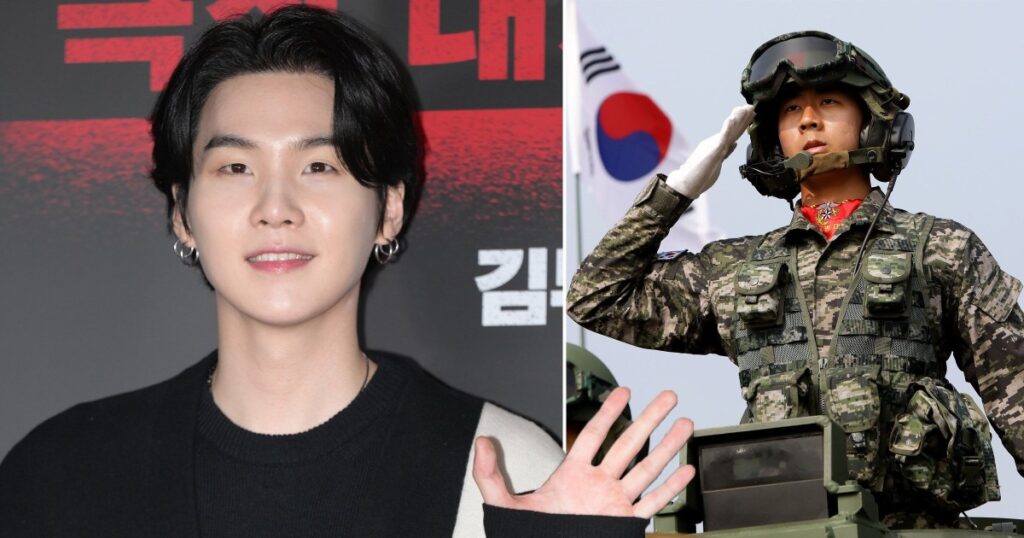SUGA, a member of the global K-pop phenomenon BTS, will officially complete his mandatory military service on Saturday, June 21, marking the return of all seven members of the supergroup from South Korea’s conscription program.
The group has been on a self-imposed hiatus since 2022 as its members fulfilled their mandatory national service, required of all able-bodied South Korean men under 30 amid ongoing tensions with North Korea. SUGA, the last of the group to finish his duty, served as a social service agent, an alternative form of military service. According to his agency HYBE and South Korea’s Military Manpower Administration, his final day concludes at 11:59:59 p.m.
His label confirmed that he effectively completed his service on Wednesday, having used up his remaining leave days. “Above all else, I wanted to … sincerely thank our fans who waited for me all this time,” SUGA said to BTS’s devoted fanbase, ARMY, on the fan platform Weverse. “I’ve missed you so much.”
The group’s return is expected to have a significant impact across the entertainment industry. Before the hiatus, BTS generated over 5.5 trillion won ($4 billion) annually in economic activity, according to the Korea Culture and Tourism Institute. Analysts anticipate a sharp rebound for HYBE, the band’s agency, with projections suggesting a 71 percent year-on-year increase in operating profit, driven in part by BTS’s anticipated return to global touring.
“The importance of BTS’s reunion to HYBE, K-pop and South Korea at large cannot be overstated. They are singular in their part of the Korean Wave,” said Grace Kao, a sociology professor at Yale University. “I think their next tour will be their biggest yet.”
Since members began returning to public life, leader RM made an appearance at Art Basel in Switzerland as a Samsung Art TV ambassador, while V was recently seen at a piano recital in Seoul alongside filmmaker Park Chan-wook.
BTS has long been celebrated as a symbol of South Korea’s cultural soft power, having made a high-profile visit to the White House in 2022. The group has also used its platform to speak out on mental health, racism, and social justice. Their $1 million donation to the Black Lives Matter movement in 2019 sparked a matching donation from fans worldwide.
Scholars say BTS and fellow K-pop acts have helped dismantle racial and geographic barriers in the global music scene. “Singers such as Eric Nam … felt that attaining a music career in the U.S. as an Asian felt impossible,” said Keung Yoon Bae, a Korean studies professor at Georgia Institute of Technology. “Today, groups such as BTS and Blackpink seem to be breaking down that sense of impossibility.”
Despite his popularity, SUGA faced public scrutiny last year after being fined 15 million won (about $10,933) for riding an electric scooter under the influence. In a new message posted on Weverse, he again addressed the incident.
“I’m sorry for the disappointment and concern I caused due to what happened last year,” he wrote. “More than anything, knowing I caused pain to my fans broke my heart. I’ll do my best to repay the love you’ve given me, now more than ever.”
With the completion of SUGA’s service, anticipation is building for BTS’s full return, with fans and industry watchers alike awaiting announcements of new music and a potential world tour.

